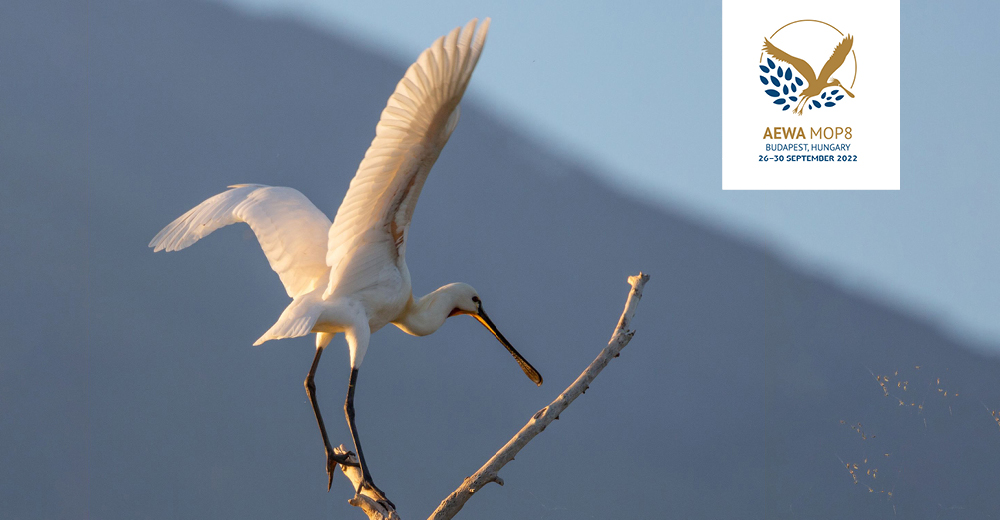Eighth Meeting of the Parties to the African-Eurasian Waterbird Agreement | Budapest, 26-30 September 2022

date: 14/10/2022
AEWA MOP8 was the first major intergovernmental nature conservation meeting hosted by Hungary, with over 200 people attending including delegates from 45 Contracting Parties, 50 representatives from non-Party countries, inter- and non-governmental organizations as well as many national and international experts.
‘Efforts of a single country are not enough to protect waterbirds, as they are exposed to many threats during the course of their migration. We can only protect them properly if all countries along their migration routes have the legal regulatory instruments and measures in place to ensure that they find adequate habitats and feeding areas. It is also important that these measures be coordinated. And that is unthinkable without international cooperation’ said Dr Zsolt Semjén, Deputy Prime Minister of Hungary, at the opening of the meeting.
The resolutions and new guidelines were adopted just days after the release of the report State of the World’s Birds 2022, warning that half of the world’s bird species are in decline and one in eight is threatened with extinction.
Countries across the African-Eurasian Flyway recognised that implementing AEWA at national and regional levels not only helps to protect waterbirds, but also makes a significant contribution to tackling the triple environmental crises of biodiversity loss, climate change and pollution.
Improved management of the wetlands and other habitats that waterbirds depend on was also seen as an essential part of maintaining the healthy ecosystems needed to sustain human communities in all parts of the Flyway.
Over the course of the four-day meeting, delegates considered a number of reports, including the latest conservation status report on the species listed under the Agreement published in 2021. This showed that an alarming 43 per cent of AEWA waterbird populations are in long-term decline and 33 AEWA species are globally threatened with extinction.
Among the decisions agreed by AEWA MOP8 in Budapest was the adoption of a new International Action Plan for the Common Eider, a declining sea-duck species covered by the treaty. The adoption brings the total to 31 action or management plans – among the most powerful tools for reversing population declines, when implemented at the flyway level.
‘Additional resources provided to AEWA will be dedicated to coordination of species action plans, as well as strengthening waterbird conservation more broadly across the African continent,’ said Jacques Trouvilliez, the Agreement’s Executive Secretary.
The final days of the meeting saw other highlights, including a total of 15 side events, the presentation of the AEWA Waterbird Conservation Awards to Mr Hichem Azafzaf (Tunisia) in the individual category and BirdLife South Africa in the institutional category, as well as the recognition of the European Commission as a Champion Plus – under the Migratory Species Champions Programme – for its generous support and commitment to the AEWA African Initiative.
More Information:
